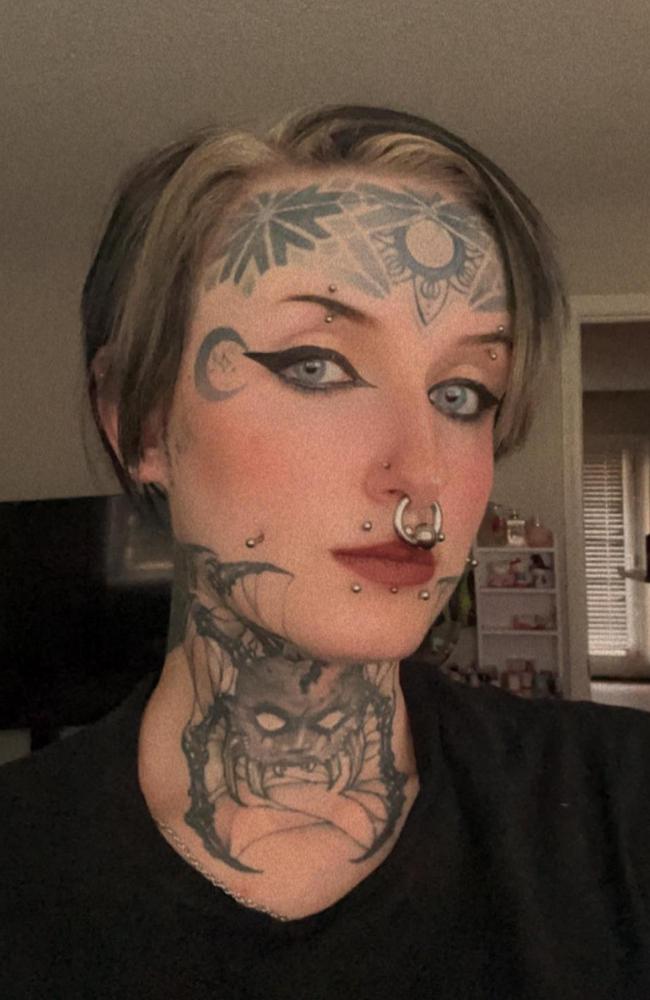
Physical appearance in the workplace and dismissals
In Australia, an employer has the right to insist that an employee maintains certain standards regarding their appearance. This could include complying with a dress code or grooming standards. It can also extend to things like covering tattoos. Unlike sex, religion, sexuality or race (among other attributes), physical appearance is not a protected attribute under the Fair Work Act 2009. Employers have the right to set dress codes and grooming standards, provided they are reasonable and relate to an employee’s role.
However, such appearance standards must be enforced in a non-discriminatory way. For instance, an employer can’t insist that you need to follow a dress code, but not require the same from other employees performing the same job. Requirements linked to physical appearance must also not discriminate based on protected characteristics like race or religion. For instance, rejecting the job application of someone because they have tattoos for cultural reasons.
In this article, we look at several cases where employers insisted on specific grooming and appearance standards for staff. These include being clean shaven, to having tattoos.
Can an employer insist on shaving?
In April 2024, the Fair Work Commission arbitrated a dispute between Tasmanian Water and a union. The dispute centred on the question of whether it was reasonable for Tasmanian Water to insist on its employees being clean shaven.
Tasmanian Water (TasWater) is responsible for providing the island state with drinking water. The organisation requires some of its employees to wear respiratory protective equipment (RPE). This is because there is the risk of inhaling noxious particles like crystalline silica and asbestos.
In 2022, TasWater began reviewing the tasks its employees performed that required them to wear RPE. The organisation also began a review of its personal protective equipment (PPE) procedure. Fast forward to September 2023, and TasWater sent an email to all its employees sharing its updated PPE procedure.
The updated procedure required employees to wear RPE when working tasks that would see them potentially inhale noxious particles. The procedure outlined that workers “must be clean shaven when wearing between the face and the seal.” This meant that employees weren’t allowed to have “stubble (even a few days’ growth), a moustache, sideburns, or a beard.” Under the previous procedure, workers weren’t required to be clean shaven.

Union argues employer can’t insist on shaving
In November 2023, the Communications, Electrical, Electronic, Energy, Information, Postal, Plumbing and Allied Services Union of Australia (the Union) intervened. It initiated a dispute under several enterprise agreements covering TasWater employees.
The dispute centred around several aspects of TasWater’s requirements for employees to wear RPE and its PPE procedure. The Union contended that the status quo provisions in the enterprise agreements prevented TasWater from enforcing the procedure until the dispute was resolved. In December 2023, TasWater applied for the Fair Work Commission to resolve the dispute.
Fair Work Commission arbitrates dispute
TasWater and the Union requested the Fair Work Commission to resolve the dispute by answering two questions. The first was whether TasWater’s requirement for employees to follow its PPE procedure was lawful and reasonable. The second question was whether the status quo provisions of the agreements applied.
The Union argued that TasWater’s direction was unreasonable. It contended that employees could have been required to wear air purifying respirators, which seal below beards. The Union also argued that TasWater had not sufficiently consulted with its employees about the new requirements.
TasWater, meanwhile, contended that using air purifying respirators was “not reasonably practicable.” This was due to their hefty cost and the need to maintain them, as well as the risk that they could break. TasWater argued to the Fair Work Commission that when its PPE procedure was introduced in 2016, it required employees to be clean shaven. However, it claimed that this was not strictly enforced.

Why employer insisted on workers being clean shaven
The Fair Work Commission heard how TasWater employees were required to cut through cement, bricks and pipes. Such tasks potentially exposed them to noxious airborne particles. Some workers also come into close contact with liquid chlorine as well as hydrated lime. This came with the risk of exposure to airborne pathogens like hydrogen sulphide and carbon dioxide.
It was revealed that four TasWater employees had refused to be clean shaven. The organisation argued that it could only allow exceptions to the PPE procedure on medical grounds. It argued that if it allowed exceptions for other reasons, this would encourage others to request exemptions. And that this would be “unfair” to those workers who complied with the procedure and would cause issues with some kinds of work.
Fair Work Commission decides
Ultimately, the Fair Work Commission ruled that TasWater’s PPE procedure was reasonable. This was because it aimed to ensure employees did not suffer illness or death from silicosis or asbestos disease. The procedure was also deemed TasWater’s duty under the Workplace Health and Safety Act. And that it was only required of those workers “who will, or are likely to, perform work that would require the usage of RPE.”
The PPE procedure was also deemed reasonable as TasWater allowed exemptions in “limited and appropriate situations.” Also, that Workplace Health and Safety laws required TasWater to supply workers with PPE and RPE. And that the Australian fit testing standard outlines that workers using RPE must not have facial hair.

Direction found to be “rational and appropriate”
On whether employees were sufficiently consulted about the new PPE procedure, the Fair Work Commission found in favour of TasWater. Then it turned to the first question to be addressed – whether TasWater’s direction for staff to be clean shaven was reasonable.
The Fair Work Commission acknowledged the “potential harm of inhaling hazardous materials” to workers. And therefore, the requirement for them to be clean shaven so that RPE would fit properly was a “rational and appropriate” direction. Regarding the second question, which asked if the status quo provisions applied, the commission said they did not. It found that not maintaining the status quo was warranted by TasWater’s “reasonable concern” for its employees.
Can an employer insist on a dress code?
In Australia, an employer can insist on employees complying with a dress code or grooming policy. However, it must apply to both male and female employees equally. Dress codes and grooming requirements must be reasonable and proportionate. This means that they must directly relate to the requirements of the employee’s role. And they can’t be enforced for one or a few employees, while others are exempt.
There are, however, circumstances in which it is not lawful and reasonable for an employer to insist on a dress code, as you will see in the following unfair dismissal case.

Wig-wearing male flight attendant wins unfair dismissal
An unfair dismissal case that involved a worker fired for flouting a dress code is Mr David Taleski v Virgin Australia International Airlines Pty Ltd T/A Virgin Australia [2013]. In this case, Virgin flight attendant David Taleski was terminated from his position in October 2011 after refusing to cut his hair to conform to Virgin Australia’s “Look Book” policy. The policy required male flight attendants to maintain hair no longer than collar length.
Mr Taleski had begun growing his hair longer in 2010, initially citing religious reasons and later attributing it to a medical condition related to body dysmorphia disorder. He provided medical certificates and attempted compromises with the airline, including wearing a wig. But Mr Taleski was ultimately dismissed for failing to adhere to the grooming standards outlined in the Look Book.
The Fair Work Commission heard evidence that Mr Taleski had made several attempts to meet the requirements without cutting his hair. This included proposing alternatives such as having a ponytail, which were rejected by Virgin Australia. The commission found that Virgin Australia’s dismissal of Mr Taleski was unjust and unreasonable. It noted that the airline had treated him differently from another employee with the same medical condition.
The Fair Work Commission determined that Mr Taleski had provided sufficient medical evidence to support his claim of body dysmorphia disorder. Also, that his dismissal was predetermined by the airline, rather than being the result of a fair process.

Can an employer insist on covering a tattoo?
In Australia, there are no state or federal laws that protect workers from discrimination based on having a tattoo. An employer has the right to set physical appearance policies that specify that tattoos are not acceptable. This means that if you have a tattoo, they can insist that it is covered while you are at work.
However, such a policy will need to be enforced in a non-discriminatory way. For instance, an employer can’t insist that you cover your tattoo, but allow other employees not to. In addition, such a demand could amount to discrimination if the tattoo is of cultural or religious significance.
Flight attended has job applications rejected because of tattoo
An employer is also within their rights to turn down job applicants with tattoos. Specifically, if the tattoo will interfere with their role. This issue was highlighted in 2016, when the story of a Gold Coast flight attendant Chontelle McGoldrick made global headlines.

21-year-old Ms McGoldrick had a tiny anchor tattoo adorning her ankle, no larger than a 10 cent coin. She had gotten the tattoo when she was 18 years of age. Ms McGoldrick applied for flight attendant positions with industry giants Qantas and Emirates. However, her aspirations were met with a setback when both airlines rejected her application, citing her ankle tattoo as the reason for their decision.
“Both airlines said they wanted to offer me a position but they couldn’t because of my tattoo,”
Ms McGoldrick told media at the time.
They told her that the tattoo may cause potential offense to certain cultures and religions. The airlines told Ms McGoldrick to consider removing the tattoo if she wanted to be employed with them as a flight attendant. Doing so, however, is not an easy process, requiring many lengthy laser removal sessions.
“It’s so annoying”: TikToker claims job rejection because of tattoos
In April 2024, another story of an employee being rejected for having a tattoo made international headlines. US TikToker Ash Putnam, who pays the bills via the platform in addition to working as an Uber Eats driver and an OnlyFans model, told her followers that her job application had been rejected by retailer TJ Maxx because of her many tattoos.
She said that she was rejected after receiving an automated email informing her that she wouldn’t be considered for the position. Ms Putnam claimed she was given no explanation as to why she was rejected. Suspecting her visible body art, including a skull with horns on her neck and a large septum piercing, played a role in the decision, Ms Putnam confronted the store in person.


During her visit, Ms Putnam claimed that when she asked a manager about the reason behind the rejection, she was told it was due to her lack of experience. However, she expressed scepticism, believing her tattoos were the true deterrent.
“I asked her if it was about my tattoos, obviously because I know a lot of places don’t like tattoos,” Ms. Putnam told media. Ms Putnam challenged the notion that tattoos are indicative of one’s abilities or intelligence, asserting that many individuals with body art excel in various fields.
“Just because I have tattoos doesn’t mean I’m not going to be a good worker,” she said. “I just feel like this is something that needs to be talked about. It’s so annoying.” Ms Putnam expressed frustration at being judged solely based on her appearance. “I hate that my tattoos are such a defining factor for me getting a job or not,” she said.
Conclusion to What can an employer insist on?
Our team at A Whole New Approach can help you lodge a claim with the Fair Work Commission. We have spent the last 30 years helping over 16,000 Australian workers make unfair dismissal claims.
We operate in every Australian state and territory and we offer a no-risk, no-fee service. But be sure to act fast, as your unfair dismissal claim must be lodged within 21 days of your dismissal. Employers are well aware of our strong reputation, and we are here to advocate for your rights. Suffering from workplace harassment, accused of serious misconduct or a victim of adverse action, call us now.
With a private and complementary consultation, we can help you understand the steps of making a claim. And we can give you the expert guidance you need to ensure your employer does not get away with violating your rights.
Reach out today at 1800 333 666 for a no-obligation discussion of your situation






